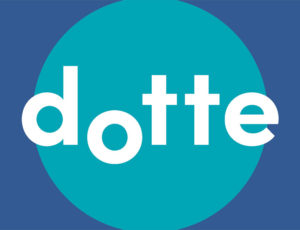Dotte co-founder Samantha Valentine discusses the benefits of being a four-day week company

Following the announcement of a four-day working week trial in the UK, CWB speaks to Samantha Valentine, co-founder of dotte – a kidswear resale platform and a four-day week company since launch − to learn more about the benefits.
Laura Turner: Firstly, what’s the story behind dotte?
Samantha Valentine: During the first lockdown dotte was born by myself and co-founder Louise out of genuine parental frustration. There was a total lack of options when it came to shopping second hand for kids. No one had done it effectively yet, so Louise and I decided to do it ourselves. We wanted to create a community space that offered parents a fully circular solution to the fastest area of fashion. On dotte, you can buy, sell, donate and recycle. By opening up thousands of children’s wardrobes with our family-to-family marketplace, we offer a simple one-stop shop where parents can give their kids’ clothes a second life and earn money to reinvest in the brands they love, but also massively reduce their family carbon footprint and protect the planet.
LT: Who makes up the dotte team?
SV: We’re currently a team of six, with more joining us in the very near future. Alongside Louise and I, Steph and Corrie work across our marketing and social media, and Alice and Nadine look after our community and customer care. As community and collaboration are at the heart of dotte, we very much apply this to our ways of working. Even though we all look after the running of specific areas of the business, we pitch in on everything – from content to customer service. It was really important to us to create an open and transparent working environment.
LT: You adopted a four-day week policy from launch. What led to this decision?
SV: Louise and I are parents, we understand the need for flexibility and the importance of a healthy work-life balance, so we’ve been a four-day week company from day one. For the dotte team, a four-day working week means having more time to pursue hobbies, pick up the kids from school, fulfil caring responsibilities, or just extra time for resting at home. It means our team can give 100% when they are at work.
LT: Do you compress full-time hours into four days or just reduce hours, so employees work one less day?
SV: We are fully behind the 100:80:100 model (100% salary, 80% of the work, and 100% productivity). We don’t ask our staff to cram full-time hours into one less day, that defies the point of burnout and will be detrimental to productivity.
LT: What are the key benefits to the team of a four-day model?
SV: Our team is rested, and it also allows time for enriching experiences, which we can all draw on and bring into our work at dotte. We place a lot of value on flexibility, believing it to lead to lower stress levels at work and higher engagement – and the feedback we receive from our staff really backs this up. Here’s what Corrie (our Social Media Exec) has to say about how she spends the extra day off. “I treat my Mondays off as a complete me-day; a quiet moment of solitude after weekend shenanigans. This looks like attending a ceramics class, practising yoga, meal planning for the week, or just spending some downtime cuddling with my cats. Then I go into Tuesdays at dotte feeling truly zen.”
LT: And the benefits to the business?
SV: Start-ups can be known for being extremely demanding on staff, with 60-hour working weeks and an ‘all hours’ culture. We don’t believe that you get the best results from wearing people out. By adopting healthy working practices, we can actually outperform the competition and produce better results that are sustainable.
LT: Has a four-day model posed any challenges to the business?
SV: The only real challenge, particularly as a streamlined start-up, is ensuring that all areas of the business are covered on days when team members are off. But we combat this by sharing the load and pitching in – and we’ve not seen any ongoing negative impact on workloads because of this.
LT: What would your advice be to other companies looking to adopt a four-day week?
SV: The global pandemic has shifted perceptions on our work-life balance, with businesses starting to reassess the needs of their staff more than ever before. But companies still need to be truly open to the concept to make it work. It sounds simple enough, but adopting a four-day working week is a big step – in particular for staff, who may feel like they need to work longer hours to make up for the shorter week. To get the most out of your team, you need to be mindful of this and be able to offer the pastoral care needed for the shift. At the end of the day, we believe the payoff is worth it for both the company and staff.
For further information on dotte, please click here.












